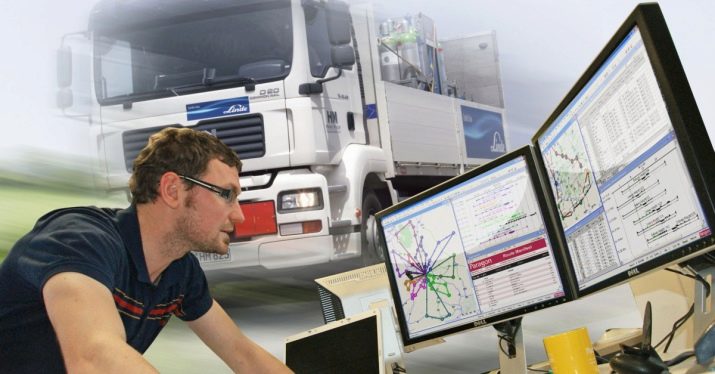Who is a transport logistician and what does he do?

At present, trade and market relations are developing rapidly in our country. For a more convenient and quick delivery of goods to consumers, there are companies that organize delivery. The logistic profession is very important in these enterprises.

Who is that?
A transport logistician is a specialist who maintains and organizes transport flows at an enterprise. Logisticians can work in different directions.
- Purchasing logistics looks for reliable suppliers for work and establishes long-term contracts with them, analyzes the market and manages inventories.
- Marketing deals with advertising and pricing, analyzes the sales market and product placement.
- Warehouse logistics sizing and locating warehouses, evaluating their performance and function.
- Transport specialist determines the mode of transport, direction and method of cargo delivery.
- Financial logistician deals with mutual settlements with enterprises, manages accounts payable and receivable.
- Industrial deals with the supply, sales of products, finance and personnel.
- Innovative looking for new options and ideas for additional income for the enterprise that can increase its productivity.

A delivery manager or logistician working in the field of transport companies deals with the delivery of goods only by road. Such companies employ several logisticians and a personal vehicle fleet.
The essence of the work is that a specialist must calculate which car is suitable for the transportation of a certain cargo.
Working in the logistics department, employees are responsible for the delivery of cargo, its safety during transportation, that is, it is necessary to avoid dangerous areas, off-road, areas where traffic jams are possible, etc. A road transport logist must legally draw up accompanying and permissive documents, fill in waybills and monitor the entire transportation chain.
Logisticians can also work on rail transportation. There they have all the same responsibilities as in road transport.

Pros and cons of the profession
Like any other profession, a logistician has its pros and cons. Among the advantages, it can be noted that this work is of an official nature with the most comfortable conditions for the employee... A specialist in this field is enough in demand, therefore, among a large number of employing companies, you can find a decent job. The nature of the work is very varied, it is interesting and not monotonous. There is constant motivation, as the employer rewards his best employees with a good fee.
Among the minuses, it can be noted that it is difficult for a young specialist to find a high-paying position without work experience... Beginners get very little, so you need to work some time to earn some kind of reputation and some experience. The work is very responsible, since the specialist is related to the inventory items for which he is responsible.
Therefore, you need to be extremely careful when preparing documents in order to bypass all the pitfalls.

Job responsibilities
When applying for a job in any transport company, an employee first of all gets acquainted with the job description, which indicates all his functional duties, what the work is, what goals and objectives are pursued. So, a specialist is engaged in performing the following functions:
- is engaged in the preparation and regulation of cargo transportation;
- creates the safest and shortest routes for the carriage of goods, selects the appropriate transport or rolling stock;
- deals with documentation, checks its correct design, keeps records of it;
- controls the work of vehicles and drivers, coordinates their work;
- prepares all documents for transportation through customs, keeps records of the arrival and departure of goods;
- presents invoices to clients under the terms of the contract for the performance of certain operations;
- prepares all documents for insurance companies, and also deals with their transfer through a courier or sending by express mail;
- takes orders for transportation, calculates the cost of transportation of goods along routes;
- monitors the cargo delivery chain: since many vehicles have a tracking system, the logistician can track the location of the goods at any time and, in case of unexpected situations, take action and eliminate any problems.

Requirements
Personal qualities
A specialist in this profession must first of all have an appropriate diploma of education in the field of logistics or in the field of customs. The state professional standard clearly defines what a specialist should know, what he is responsible for and what he can demand from the employer.
A person in this profession must be sociable and stress-resistant, since most of the time he will have to communicate with people. An excellent advantage would be knowledge of foreign language, as it may be necessary to cooperate with foreign companies. A specialist in this profession must have analytical skills, since he will often need to calculate all situations and transportation schemes to the smallest detail, finding the best way out.
The main thing in any situation is to be correct and delicate both with clients and with subordinates.

Professional skills
In addition to the necessary education, a logistician must know the laws and documents directly related to transportation.This is transport and customs legislation... He must be familiar with logistic schemes and projects, the basics of building a logistic connection, he must understand how the production process is planned. The specialist must know the standards in the field of packaging and transportation, understand the standards for loading vehicles that are used for cargo transportation.
He should be familiar with the technology of working with customs, which is used when processing documentation and cargo.
The specialist must know the information systems that are used in the field of logistics, advertising and marketing, ethics of communication with customers, health and safety rules, as well as the rules of industrial sanitation. The logistician is responsible for failure to fulfill his duties, which are provided for in the job description. If actions were committed that resulted in a violation of safety standards at the enterprise, material damage or otherwise, then administrative liability may be applied to the employee.

Prospects and career growth
To become successful in this industry, you need to start your career, taking into account the fact that you are a young specialist after university, with small companies. To begin with, you will be offered a little money, but on the other hand you will be able to familiarize yourself with the documentary work and understand all the logistics processes... It all depends on your aspirations. In literally a year, you will be able to figure out and understand all the tasks of general logistics, which will allow you to choose a narrow industry. Only then can you start your own career.
Since the demand for this profession is very high, and you will already have some experience, you will be able to apply for a job in large companies. Of course, working in a large company requires even more responsibility, but the salary will be several times higher. In Russia, the salary of a logistician can vary from 10,000 to 40,000 rubles per month. It all depends on experience and professional skills. And with knowledge of a foreign language, you will be the most demanded specialist among foreign employers, who will be able to pay you several times more than domestic enterprises.



